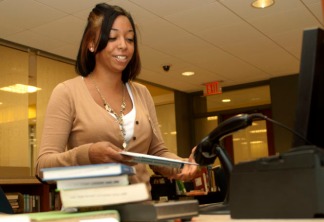For college students, finding a balance between academics, work, and life can be difficult. It isn’t always easy finding time for everything, especially during midterms and finals. Before things really get crazy, we’ve put together some suggestions to help you keep your sanity and still manage everything you have to do this semester.
Prioritize. While your first priority should be school, you will want to put together a list of the most important tasks to the least. By prioritizing everything you have to do, you can figure out what you need to do first, and what you might be able to put off if you don’t have time.
Set a schedule. Setting a schedule for yourself is the best way to ensure you can get free time without procrastinating on your other priorities. You should set a schedule for yourself of all the things you need to get done, and when you want to get them done by. Then the only thing you need to do is be sure to stick to it!
Set realistic goals. This is part of setting a schedule for yourself; you want to be sure to set goals for yourself when you want to have things done by. It’s just important to keep realistic goals, as that will encourage you to get things done. If you set unrealistic goals, you are less likely to meet them and you will end up further behind in your work.
Stay organized. One of the best things you can do for yourself is to stay organized. That way you won’t be losing important papers. By keeping to-do lists and schedules that you set for yourself, this will also keep you organized and will prevent you from getting too overwhelmed.
Work in the library. If you’re prone to procrastinating, you may want to consider studying at the library. It’s not only a quiet place to study, but it’s also free from distractions. Studying at the library also gives you a way to schedule when you’ll do your work, as you don’t want to be at the library all night.
Know when to say “no”. You can’t do everything; you need to make sure that you aren’t taking on extra shifts at work or going out with your friends when you are behind in your schedule or you have work to do for school. You don’t want to overload and overschedule yourself, as you will become overwhelmed with everything you have to do.
For students, it can be difficult and overwhelming to balance everything you need to when it comes to school, work, and life. However, the best things to do are to prioritize, set a schedule for yourself, set realistic goals, stay organized, work in the library if you need to, and know when to say “no.” By doing these simple things, you cannot only ensure that you get everything done, but that you get to have a little fun too.
References
College Fashion – 5 Easy Ways to Balance School and Life in College
Surviving College Life – Prioritizing and Balance: 3 Ways to Begin
College Confidential – Balancing College School Work and Social Life
MyCollegeSuccessStory.com – 10 Tips for Finding Life Balance in College



